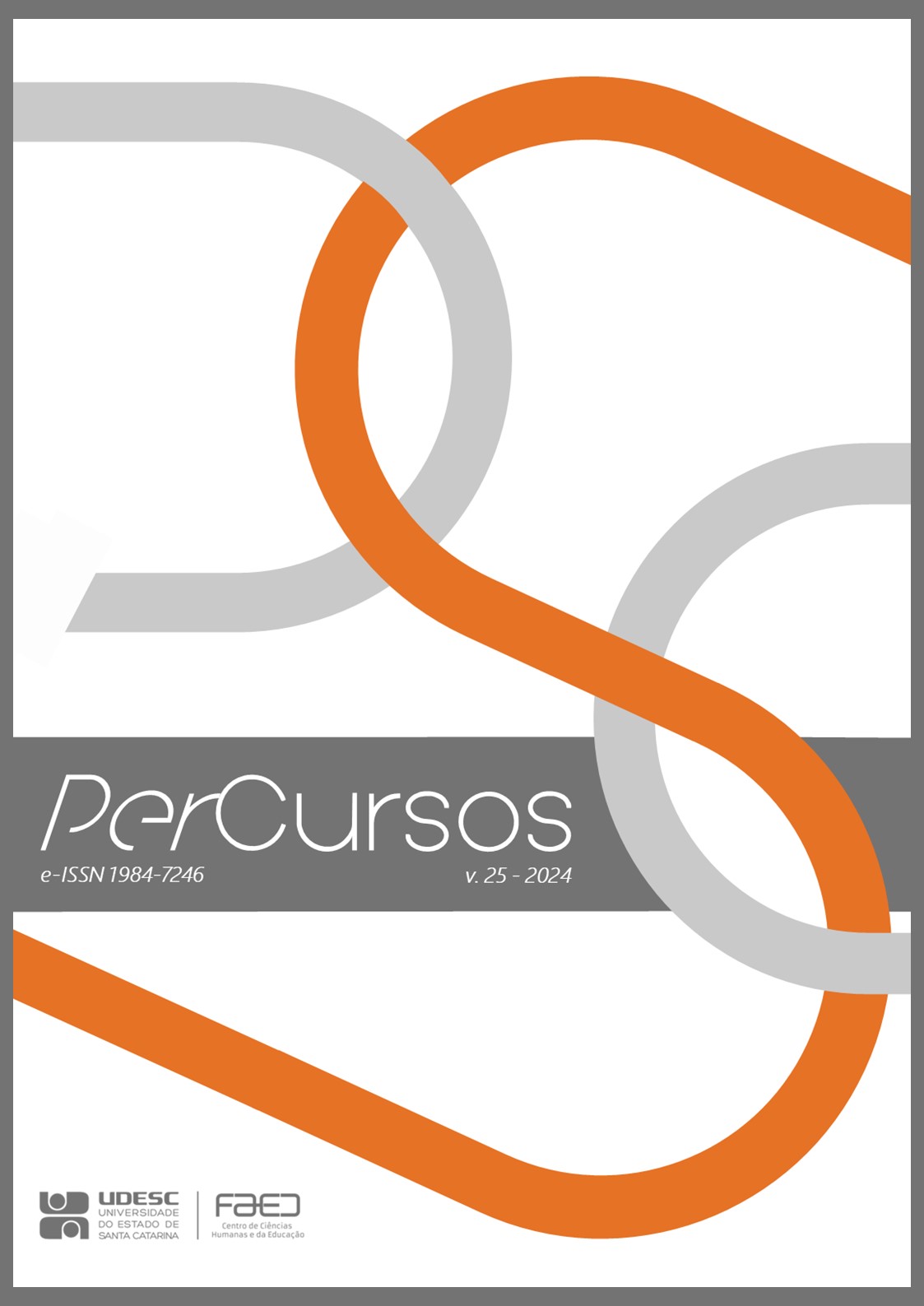Intellectuality between the terreiro and academia in the 21st century: the contribution from Iyalorixá Dalzira Maria Aparecida Iyaguña in southern Brazil
DOI:
https://doi.org/10.5965/19847246252024e0108Keywords:
ancestry, african-derived tradition, terreiro, intellectualityAbstract
This article proposes a reflection on intellectuality based on knowledge production organized outside the Western standards, and that stems from a sacred locus of practices and rites in Afro-Brazilian religions, known as terreiro. The research method was based on an ethnographic approach and draws on an open interview carried out at the Ilê Asé Ologbo Ogum terreiro, with the collaboration of the Candomblé’s Iyalorixá (priestess of Candomblé religion) Dalzira Maria Aparecida Yaguña de Ogum, a very dark black woman – as she refers to herself – who defended her doctoral thesis at the age of eighty. From the provocative questions made to the Iyalorixá and her answers to these questions, an intellectual tension was observed that pervades the flow between academia and the terreiro. The formal institutionalized knowledge and the knowledge acquired through conceptions experienced in the African-derived religious practices, which has ancestry as the mainstay for understanding the world, were contrasted. Thus, the narratives were organized around the processes of identity and resistance, considering memory as a linkage to ancestral heritage that, in this article, is constituted by means of affection and family ties. Orality was highlighted as the means that preserves, through oral language, the ancestral memory that guides time and permanence of people of African-derived tradition. It emerged that the epistemological reason that develops the processes of intellectuality produced in the field of knowledge, philosophy and thought of black people in Brazil is based on concepts that stem from the African cosmology that passes through the subject's condition of being.
Downloads
References
ALMEIDA, Eliane. A pedagogia cosmocena e a afrocentricidade nos terreiros de Matriz Africana. Porto Alegre: Editora Nika, 2019.
CARNEIRO, Aparecida Sueli. A construção do outro como não-ser como fundamento do ser. 2005. Tese (Doutorado em Educação) - Universidade de São Paulo, São Paulo, 2005.
CUNHA, Janine Nina Fola. Corpo – Terreiro: como podem se verificar as categorias ocidentalizadas de gênero, sexualidade e hierarquias neste contexto. Letra Magna: Revista de Divulgação Científica em Língua Portuguesa, Linguística e Literatura, Cubatão, v. 26, n. 16, p. 144-233, jun. 2020. Semestral. ISSN 1807-5193. Disponível em: https://ojs.ifsp.edu.br/index.php/magna/issue/view/163/215. Acesso em: 27 mar. 2024.
FOUCAULT, Michel. Microfísica do poder. [S. l.: s. n.], 1998. Disponível em: https://www.nodo50.org/insurgentes/biblioteca/A_Microfisica_do_Poder_-_Michel_Foulcault.pdf . Acesso em: 11 nov. 2022.
FOUCAULT, Michel. A ordem do discurso. [S. l.]: Ciberfil, 2002. Disponível em: https://pt.scribd.com/document/2520353/Michel-Foucault-A-Ordem-do-Discurso. Acesso em: 13 set. 2023.
IYAGUÑA, Dalzira Maria Aparecida [Dalzira Maria Aparecida Iyaguña de Ogum]. [Entrevista cedida a] Basualdo Irineu dos Reis Gomes; Letícia de Assis; Roselaine Dias da Silva e Sandra Tanhote. Curitiba, maio 2023.
IYAGUÑA, Dalzira Maria Aparecida. Professoras negras: gênero, raça, religiões de matriz africana e neopentecostais na educação pública. 2022. 186 f. Tese (Doutorado em Educação) – Curso de Pós-Graduação em Educação, Setor de Educação, Universidade Federal do Paraná, Curitiba, 2022. Disponível em: https://acervodigital.ufpr.br/xmlui/bitstream/handle/1884/86926/R%20-%20T%20-%20DALZIRA%20MARIA%20APARECIDA%20IYAGUNA.pdf?sequence=1&isAllowed=y. Acesso em: 24 mar. 2024.
MARTINS, Leda Maria. Performances do tempo espiralar, performances do corpo-tela.1 ed. Rio de Janeiro: Cobogó, 2021.
NASCIMENTO, Iraildes E. Andrade. A Reconstrução das Famílias Negras no Tempo. In: CORREIA, Marcos F. Rezende (org.). Mulheres de Axé. Salvador: Kawo- Kabiyesile, 2013. p. 47-49.
OLIVEIRA, David Eduardo. Cosmovisão africana no Brasil: elementos para uma filosofia afrodescendente. Curitiba: Editora Gŕafica Popular, 2006.
RAMOSE, Mogobe B. Sobre a legitimidade e o estudo da filosofia africana. Ensaios Filosóficos, Rio de Janeiro, v. 4, n. 1, p. 6-24, out. 2011. Disponível em: https://www.ensaiosfilosoficos.com.br/Artigos/Artigo4/RAMOSE_MB.pdf. Acesso em: 24 mar. 2024.
RUFINO, Luis. Pedagogia das encruzilhadas. Rio de Janeiro: Mórula, 2019.
SANTOS, Nadja A. Coelho. O Candomblé na representação da Iyalorixá. In: CORREIA, Marcos F. Rezende (org.). Mulheres de Axé. Salvador: Kawo- Kabiyesile, 2013. p. 38-46.
SILVA, Salete M. da Silva. Mulheres de Axé: matrizes de afetividade e de empoderamento constantes. In: CORREIA, Marcos F. Rezende (org.). Mulheres de Axé. Salvador: Kawo- Kabiyesi, 2013. p. 34-37.
SPIVAK, Gayatri Chakravorty. Pode o subalterno falar? Belo Horizonte: Editora UFMG, 2010. Disponível em: https://joaocamillopenna.files.wordpress.com/2013/10/spivak-pode-o-subalterno-falar.pdf. Acesso em: 06 set. 2022.
Published
How to Cite
Issue
Section
License
Copyright (c) 2024 PerCursos

This work is licensed under a Creative Commons Attribution-NonCommercial 4.0 International License.


